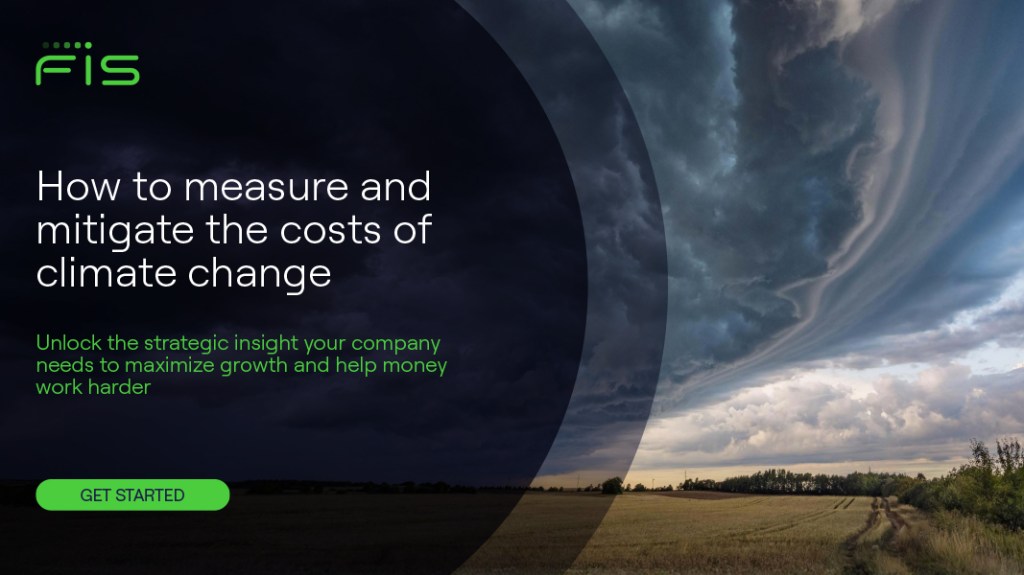The case for buying climate tech from BIPOC and women-owned suppliers
How can the two principal agents in the economy, suppliers and demanders, bring about climate justice? For customers and procurers, one solution is to buy Black. Support women-owned. Go local. Read More

Stopping carbon pollution alone will not bring climate justice. Reaching net-zero by 2050 will not either. Neither will achieving 100 percent renewable energy targets.
The entire economy is being rebuilt. From electric modes of transportation to climate-smart agriculture, the low-carbon economy creates new roles, companies and workers. It would be regressive if this green economy excluded the very communities disproportionately affected by a changing climate. Moreover, the climate-friendly transition could provide an opportunity to create a more just workforce — one that includes more women and underrepresented people of color at all levels of leadership and ownership.
Right now, this opportunity is not so.
A 2019 study by the Solar Foundation and Solar Energy Industries Association (SEIA) found that among all senior executives reported by solar firms, 88 percent are white and 80 percent are men. Another report from the National Association of State Energy Officials (NASEO) and the Energy Futures Initiative found that for energy efficiency jobs, women and Black workers substantially lag the national workforce averages. If these trends continue, the low-carbon economy will be just as extractive as its predecessor.
Previously, oil and gas companies topped the list of the largest Black-owned enterprises in the U.S. In the 1980s, the largest 10 of these included five energy-related companies, with combined annual sales of about $854 million in 2021 U.S. dollars: Wallace & Wallace; the Vanguard Oil and Service Company; Smith Pipe and Supply Inc.; the Grimes Oil Company; and the Chioke International Corporation.
How can the two principal agents in the economy, suppliers and demanders, bring about climate justice? For customers and procurers, one solution is to buy Black. Support women-owned. Go local. That would require an ample supply of green products and services led by women and underrepresented people of color. So where are these suppliers, who are they and what do they have to offer?
Historically in the United States, there have been government and corporate procurement programs that support minority- and women-owned business enterprises (MWBEs). Many qualifying certification schemes exist, ranging from local to national, and from public, free structures to private, paid third-party structures.
The National Minority Supplier Development Council (NMSDC), founded in Chicago in 1972, certifies minority business enterprises (MBEs) through 23 regional councils across the U.S. The requirements? A company must be at least 51 percent owned and operated by Asian, Black, Hispanic or Native American U.S. citizens. The Women’s Business Enterprise National Council (WBENC), founded in 1997, certifies women-owned businesses in the U.S. To qualify, a business must be 51 percent owned, controlled, operated and managed by a woman or women.
While these systems may appear straightforward, they can be troublesome for the business owner. One Black-led cleantech startup was so frustrated with the NMSDC process that the founder gave up — at the time when she applied, NMSDC would not verify her as Black without her parental birth records indicating race. This information can be hard to come by for a whole host of reasons. Relying on 23andMe-style DNA tests also does not seem like a viable option for privacy and other concerns.
Another Black founder explained, “Most procurement programs that have minority- and women-led business targets have their own process for verification, making third-party systems a redundant, unnecessary cost burden.” Others find the whole notion outdated, and most importantly for the bottom line, not helpful for attracting and retaining customers.
Can a system established about 50 years ago meet the needs of today? After all, a lot has evolved in the marketplace — the digital age coupled with social media has changed the way businesses interact. The investment landscape, which still systemically and systematically denies access to capital to women and underrepresented people of color, also has evolved since the 1970s.
As detailed in a report by the Brookings Institute, only 4 percent of the 22.2 million U.S. business owners are Black, and only 1 percent of Black business owners get a loan in their first year of business compared with 7 percent for white business owners.
Finally, the democratization of information has led to a certain public accountability that lends itself to favor self-identification of race, ethnicity and gender.
Instead of relying on a paywalled list of suppliers, purchasers form relationships with suppliers through “warm lead” business recommendations, industry vertical networks considered more trustworthy given the focus on subject matter expertise, and other avenues, such as the “crowd,” that help vet potential business partners.
Many tech-oriented companies prefer equity to debt, and often can only consider equity at the early stages. The need to offer equity to investors often reduces the percentage of the founder’s ownership below the 51 percent threshold. The need to prove a certain race or gender may be less helpful than just using self-identification; today’s social media mechanisms create some accountability.
Many procurement programs that seek to improve representation penalize larger MWBEs. The regulations are also set up to force these businesses to remain small, by putting in place revenue caps of as low as $3 million to qualify and by only having programs for MWBE sub-contractors, as opposed to prime contractors.
Perhaps one way forward is to align with the times, where the ecosystem of capital and access to information has evolved. That is, make visible and uplift the MWBEs leading the clean transition, make the list of founders and senior executives open-access, provide early-stage capital (debt, equity, revenue share, non-dilutive grants) for both small and midsize enterprises and high-growth tech startups alike, strategically partner with MWBEs on projects, and remove the red tape that exists in procurement programs to keep underrepresented MWBEs in a subordinate and small position.
On the latter point, the wish list for Black women cleantech founders that I spoke to include allowing for more flexibility around equity ownership (51 percent may be too onerous, especially for VC-backed startups), raising revenue caps (let’s say to $100 million), including sustainability and clean energy carve-outs in procurement, and moving away from third-party certification to decide who is a woman and who is a racial or ethnic minority.
Black Owners of Solar Services (BOSS) is an organization set up to support smart policies that bring about climate justice in the U.S. Below is a list of Black-led companies, both small and midsize enterprises and startups, that are leading the low-carbon transition. Although not as robust as this list, for customers and procurers, this is where you can start. (The list is arranged by speciality and sorted by first name.)
| Senior Executive/CEO/Founder | Specialty | Company |
|---|---|---|
| Etosha Cave, Founder and CSO | Carbon Economy | Opus 12 |
| Lisa Dyson, Founder and CEO | Carbon Economy | Kiverdi |
| Anthony Kinslow, Founder and CEO | Data, Energy Efficiency and Buildings | Gemini Energy Solutions |
| Devin Hampton, CEO | Data, Energy Efficiency and Buildings | Utility API |
| Donna Sanders, Founder and CEO | Data, Energy Efficiency and Buildings | Virimodo |
| Donnel Baird, Founder | Data, Energy Efficiency and Buildings | BlocPower |
| SaLisa Berrien, CEO and Founder | Data, Energy Efficiency and Buildings | COI Energy |
| Ugwem Eneyo, Co-founder | Data, Energy Efficiency and Buildings | SHYFT Power Solutions |
| Ajulo E. Othow, Founder and CEO | Solar Energy | EnerWealth Solutions |
| Dana Clare Redden, Founder | Solar Energy | Solar Stewards |
| Fayeann Lawrence, Founder and CEO | Solar Energy | Sologistics |
| Gilbert Campbell and Antonio Francis, Co-founders | Solar Energy | Volt Energy |
| Jason Carney, Founder and CEO | Solar Energy | Energy Electives |
| Jessica O. Matthews, Co-founder and CEO | Solar Energy | Uncharted Power |
| Jessica Newton, Founder and CEO | Solar Energy | OBIPower |
| Ken Wells, CEO | Solar Energy | O&M Solar Services |
| Kristal Hansley, Founder | Solar Energy | WeSolar |
| Mark Davis, Founder and President | Solar Energy | WDC Solar |
| Mina McCullom, President and CEO | Solar Energy | SynEnergy |
| Monique Dyers, Founder and Managing Principal | Solar Energy | Ensight Energy |
| Nicole Poindexter, Co-founder and CEO | Solar Energy | Energicity |
| Reginald Parker, Founder and President | Solar Energy | Optimal Technology Corporation |
| Rob Wallace, Co-founder and CEO | Solar Energy | Power52 |
| Salma Okonkwo, CEO | Solar Energy | Blue Power Energy |
| Jasmine Crowe, Founder and CEO | Sustainable Agriculture and Food | Goodr |
| Kellee James, Founder and CEO | Sustainable Agriculture and Food | Mercaris |
| Nemo Semret, Sara Menker and Sewit Ahderom, Co-founders | Sustainable Agriculture and Food | Gro Intelligence |
| Tinia Pina, Founder and CEO | Sustainable Agriculture and Food | Re-Nuble |
| Zuleyka Strasner, Founder | Sustainable Agriculture and Food | Zero Grocery |
| Chancée Lundy, Co-founder | Zero Emissions Transport | Nspiregreen |
| Kameale Terry, Co-founder and CEO | Zero Emissions Transport | ChargerHelp! |
| Sheryl Ellison Ponds, Founder and CEO | Zero Emissions Transport | DaiTechCorp |











